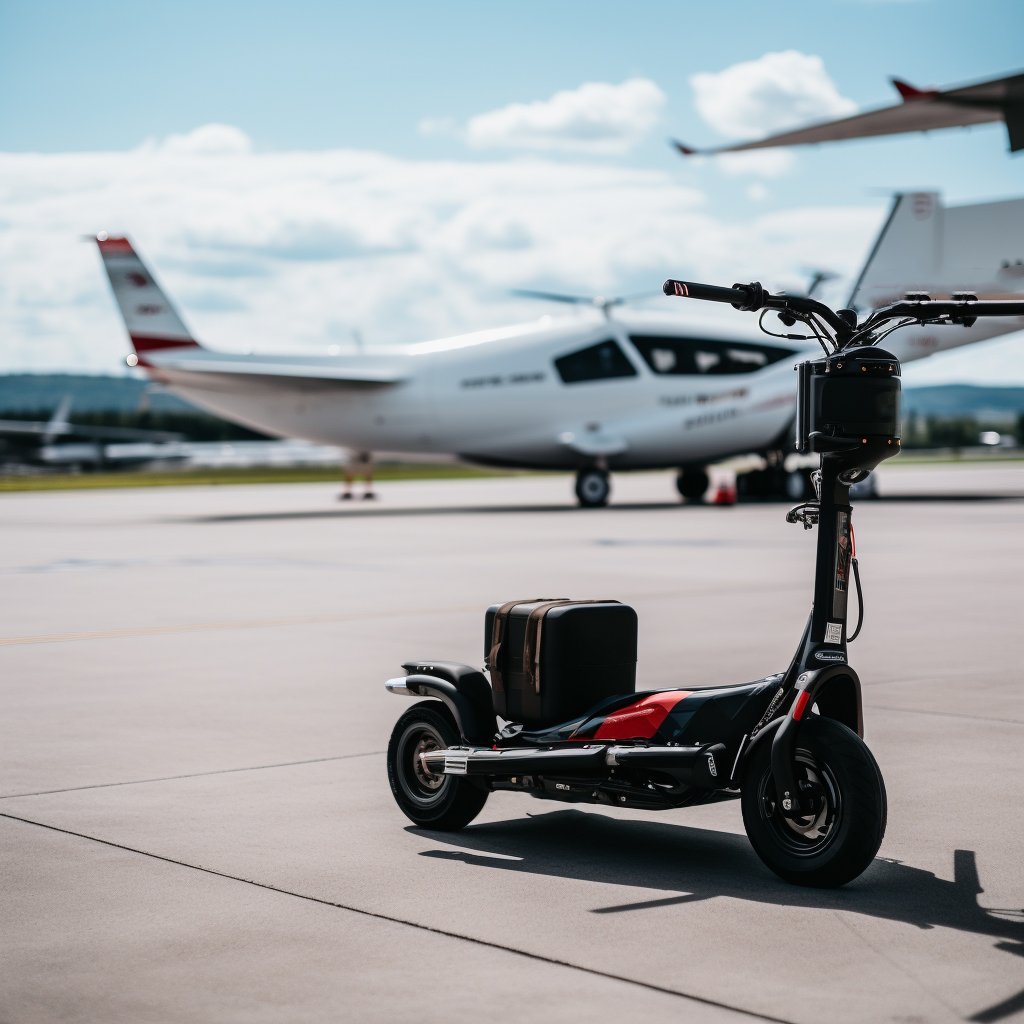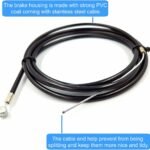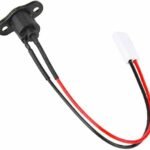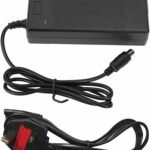
Traveling with an electric scooter has become increasingly popular in recent years. However, many people wonder if they can take their electric scooter on a plane. The answer is not a simple yes or no, as it depends on the airline’s policies and the battery size of the scooter.
According to the Federal Aviation Administration (FAA), electric scooters with lithium-ion batteries are not allowed on commercial flights. This is due to safety concerns, as these batteries have been known to catch fire or explode. However, some airlines do allow electric scooters on-board, as long as the battery size is within their guidelines. It is important to check with the airline before booking a flight to see if they allow electric scooters and what their specific policies are.
Looking for more insights? You may also find these articles relatable and helpful:
- Best Affordable Electric Bikes Under $1000
- Exploring Water Resistance and Maintenance of Electric Bikes
- Comprehensive Guide to E-Bike Regulations in the UK
- The Rise of Electric City Bikes
- Top 5 Electric Bikes of 2023: Future of Green Transportation
- Pioneering Sustainable Urban Mobility with Electric Bikes
- Can I Charge My Electric Bike Using Solar Panels?
Understanding Electric Scooters
Electric scooters are becoming increasingly popular as a mode of transportation due to their ease of use, affordability, and eco-friendliness. They are powered by rechargeable batteries and can reach speeds of up to 25 mph, depending on the model.
When it comes to traveling with an electric scooter, it is important to consider the top speed and battery size of the scooter model. Most airlines have restrictions on the battery size of electric scooters that can be brought on board. For example, if the battery size is between 100 and 160 Watt-hours, permission from the airline is usually required.
Manufacturers of electric scooters have designed models that are specifically approved for air travel. For instance, the Razor EcoSmart Metro Electric Scooter is one such model that meets the requirements of most airlines. It has a top speed of 18 mph and a battery size of 500 Watt-hours, which is above the limit set by most airlines.
It is important to note that while electric scooters are a convenient mode of transportation, they are not allowed on all types of roads and sidewalks. Laws vary by location, so it is important to check local regulations before using an electric scooter.
In summary, electric scooters are a popular and eco-friendly mode of transportation that can be used for commuting or leisure. When traveling with an electric scooter, it is important to consider the battery size and top speed of the model, as well as any airline restrictions. It is also important to check local regulations regarding the use of electric scooters.
Airline Policies on Electric Scooters
Traveling with an electric scooter can be a convenient way to navigate a new city or explore a new destination. However, before packing your electric scooter for a trip, it is important to understand the policies of the airline you will be flying with.
Most airlines prohibit bringing electric scooters on board due to safety concerns. However, some airlines do allow electric scooters on board as long as they meet certain requirements.
According to EScooterNerds, the following airlines allow electric scooters on board:
- Turkish Airlines
- Qatar Airways
- S7
- Lion Air
- Air India
- Vietnam Airlines
It is important to note that even if an airline allows electric scooters on board, there may be restrictions on the battery size. In most cases, electric scooters with batteries exceeding 160 Wh will not be allowed on board. Some airlines may require special permission if the battery exceeds 100 Wh.
For example, according to Electric Scooter Central, Qatar Airways allows electric scooters on board with a battery size of up to 300 Wh, but passengers must obtain approval from the airline prior to travel.
It is also important to properly pack your electric scooter for travel. According to The Scooter Guide, the battery must be removed from the electric scooter and placed in a separate bag. The electric scooter should be folded and placed in a carrying case or bag.
It is recommended to check with the airline prior to travel to ensure that you are following their policies and requirements for bringing an electric scooter on board.
Electric Scooter Battery Regulations
When it comes to taking an electric scooter on a plane, one of the most important factors to consider is the battery. Most airlines have strict regulations in place regarding the type and size of batteries that can be brought on board.
The most commonly used battery for electric scooters is the lithium-ion battery. These batteries are widely used because they are lightweight, compact, and provide a high energy density. However, they are also considered to be hazardous materials and are subject to strict regulations.
The Federal Aviation Administration (FAA) has set guidelines for the size and type of batteries that can be brought on board. According to the FAA, lithium-ion batteries with a watt-hour rating of more than 100 Wh are not allowed on commercial flights. This means that most electric scooters with lithium-ion batteries are not allowed on planes.
However, if the battery of the electric scooter has a watt-hour rating between 100 and 160 Wh, it may be allowed on board with prior approval from the airline. It is important to check with the airline beforehand to ensure that the battery is within the allowed limit.
If the electric scooter has a battery with a watt-hour rating of more than 160 Wh, it is not allowed on board, even with prior approval. In this case, the battery must be removed from the scooter and transported as cargo.
It is also important to note that some airlines have additional restrictions on batteries. For example, some airlines may only allow two extra batteries to be carried on board, while others may have restrictions on the type of battery that can be brought on board.
In summary, the battery of an electric scooter is a crucial factor to consider when traveling with it on a plane. It is important to check with the airline beforehand to ensure that the battery is within the allowed limit and to be aware of any additional restrictions that may apply.
Traveling with Electric Scooters

Traveling with an electric scooter can be a convenient way to explore a new city or destination. However, before packing your scooter for your trip, it is important to understand the rules and regulations surrounding its transportation.
Air Travel
When it comes to air travel, not all airlines allow electric scooters on board. According to a source, only a few airlines such as Turkish Airlines, Qatar Airways, S7, Lion Air, Air India, and Vietnam Airlines permit electric scooters on their planes. Before booking your flight, it is essential to check with the airline’s policy regarding electric scooters.
Additionally, the battery size of the electric scooter plays a significant role in determining whether it is allowed on the plane. If the battery exceeds 160 Wh, it is not permitted on board most flights. However, if the battery is less than 160 Wh, it may be allowed on board with special permission. It is recommended to contact the airline and check their policies before heading to the airport.
Baggage
If the electric scooter is allowed on the plane, it is important to consider the baggage policy. Some airlines may allow the scooter as carry-on baggage, while others may require it to be checked. It is important to check the airline’s baggage policy to avoid any surprises at the airport.
Domestic Travel
When traveling domestically, it is important to check the rules and regulations of the transportation method. For example, Amtrak allows electric scooters on their trains, but they must be stored in the baggage compartment. Similarly, buses may permit electric scooters, but it is important to check with the bus company beforehand.
Rental Options
If you do not want to travel with your electric scooter, there are rental options available at many destinations. Rental companies offer a variety of electric scooters, and it is important to check their policies, including the battery size and weight restrictions.
Airport and Airplane
When traveling with an electric scooter, it is important to be aware of the airport and airplane environment. The scooter may be subject to security checks, and it is essential to follow the rules and regulations set by the airport and airline. Additionally, it is important to be respectful of other passengers and their space on the plane.
In conclusion, traveling with an electric scooter can be a convenient way to explore a new destination. However, it is important to understand the rules and regulations surrounding its transportation, including airline policies, baggage restrictions, and rental options. By following these guidelines, travelers can ensure a hassle-free and enjoyable trip.
Safety and Legal Considerations
When it comes to bringing an electric scooter on a plane, there are important safety and legal considerations to keep in mind. These considerations are in place to ensure the safety of passengers, crew, and the aircraft itself.
FAA and IATA Guidelines
The Federal Aviation Administration (FAA) and the International Air Transport Association (IATA) have established guidelines for the transportation of dangerous goods, including batteries. Lithium-ion batteries, which are commonly used in electric scooters, are considered hazardous materials and are subject to these guidelines.
According to the FAA, electric scooters with lithium-ion batteries are not allowed on commercial flights. The risk of fire posed by these batteries in a pressurized aircraft cabin is simply too great. Similarly, the IATA has classified lithium-ion batteries as forbidden dangerous goods on passenger aircraft.
Local Laws and Regulations
In addition to FAA and IATA guidelines, there may be local laws and regulations that govern the transportation of electric scooters on planes. It is important to check with the airline and the destination country’s regulations before attempting to bring an electric scooter on a plane.
TSA Guidelines
The Transportation Security Administration (TSA) has specific guidelines for the transportation of batteries on planes. Lithium-ion batteries with a watt-hour rating of more than 100 Wh but less than 160 Wh are allowed on planes with airline approval. Batteries with a watt-hour rating of more than 160 Wh are forbidden on planes.
It is important to note that the TSA may confiscate electric scooters that are not in compliance with their guidelines. To avoid any issues, it is recommended to contact the airline and the TSA before traveling with an electric scooter.
Heat and Damage
Electric scooters should be properly packaged and protected to avoid damage during transport. It is also important to avoid exposing the scooter to extreme heat, as this can cause damage to the battery and other components.
In summary, safety and legal considerations are crucial when transporting an electric scooter on a plane. It is important to follow FAA and IATA guidelines, check with the airline and destination country’s regulations, and follow TSA guidelines to avoid any issues. Proper packaging and protection of the scooter should also be considered to avoid damage during transport.
Special Exceptions and Alternatives
While most airlines prohibit bringing electric scooters on board, there are some special exceptions and alternatives available for those who need to travel with their mobility devices.
Firstly, it is important to note that some airlines may allow electric scooters on board if they are within certain limits. As mentioned earlier, most airlines prohibit electric scooters with batteries exceeding 160 watt-hours. However, some airlines may allow electric scooters with batteries up to 300 watt-hours, provided that they are properly packed and declared. It is recommended to check with the airline beforehand to see if they have any special policies or procedures in place.
For those who require mobility aids, such as mobility scooters or wheelchairs, most airlines allow them on board free of charge. However, it is important to notify the airline in advance and provide details about the device, including its weight and dimensions. Additionally, it is recommended to arrive at the airport early to allow for extra time to check in and board the plane.
Some airlines may also offer alternatives to electric scooters, such as mobility scooters or electric bikes. These devices may be allowed on board, subject to certain restrictions and conditions. It is recommended to check with the airline beforehand to see if they have any special policies or procedures in place.
It is also important to note that some airlines may charge extra fees for carrying mobility devices or sports equipment on board. It is recommended to check with the airline beforehand to see if any extra charges apply.
Finally, it is important to follow all safety regulations and guidelines when traveling with portable electronic devices, such as laptops or hoverboards. It is recommended to pack these devices in carry-on luggage and notify the airline in advance if necessary.
Overall, while most airlines prohibit bringing electric scooters on board, there are some special exceptions and alternatives available for those who need to travel with their mobility devices. It is recommended to check with the airline beforehand and follow all safety regulations and guidelines to ensure a smooth and safe travel experience.
Conclusion
Taking an electric scooter on a plane can be a challenging task due to the strict regulations of airlines and aviation authorities. While smaller scooters may be allowed as carry-on items or checked baggage, larger models are often prohibited.
According to the FAA, electric scooters with lithium-ion batteries are not allowed on commercial flights. Over 4,000 hoverboards and electric scooters were confiscated at airports in 2019. However, there are alternative options for traveling with your scooter, like shipping it ahead of time.
Before making any travel plans, it is crucial to familiarize yourself with the airline policies and regulations regarding electric scooters. Each airline has its own set of rules and restrictions, and it is important to adhere to them to avoid any inconvenience or disappointment.
In conclusion, taking your electric scooter on an airplane requires some research and preparation, but it can be done successfully with the right approach. Check your scooter’s battery watt-hour rating, familiarize yourself with airline policies, and pack your scooter securely to ensure a stress-free travel experience.
Frequently Asked Questions
Are electric scooters allowed on airplanes?
Many airlines allow electric scooters on their flights, but there are restrictions and guidelines that need to be followed. It’s important to check with the airline before booking a flight to ensure that the electric scooter can be brought on board.
What are the restrictions for bringing an electric scooter on a plane?
The restrictions vary depending on the airline and the type of electric scooter. Generally, the battery size and weight are the main restrictions. Lithium-ion batteries over a certain size are not allowed on flights, and the scooter must be properly packed and labeled. It’s important to check with the airline for specific restrictions and guidelines.
Can lithium battery electric scooters be taken on a plane?
Yes, but there are restrictions on the size and weight of the battery. Lithium-ion batteries over a certain size are not allowed on flights, so it’s important to check with the airline for specific guidelines.
How do you pack an electric scooter for air travel?
The electric scooter must be properly packed and labeled for air travel. It’s recommended to disassemble the scooter and pack it in a hard-shell suitcase or box. The battery must be removed and packed separately, and the scooter should be labeled as “fragile” or “special handling.”
What is the cost to bring an electric scooter on a plane?
The cost to bring an electric scooter on a plane varies depending on the airline. Some airlines may charge an additional fee for oversized or special handling items, while others may include it in the checked baggage allowance. It’s important to check with the airline for specific pricing.
What are the rules for riding an electric scooter in an airport?
The rules for riding an electric scooter in an airport vary depending on the airport. Some airports allow electric scooters in designated areas, while others prohibit them altogether. It’s important to check with the airport for specific rules and guidelines.




















